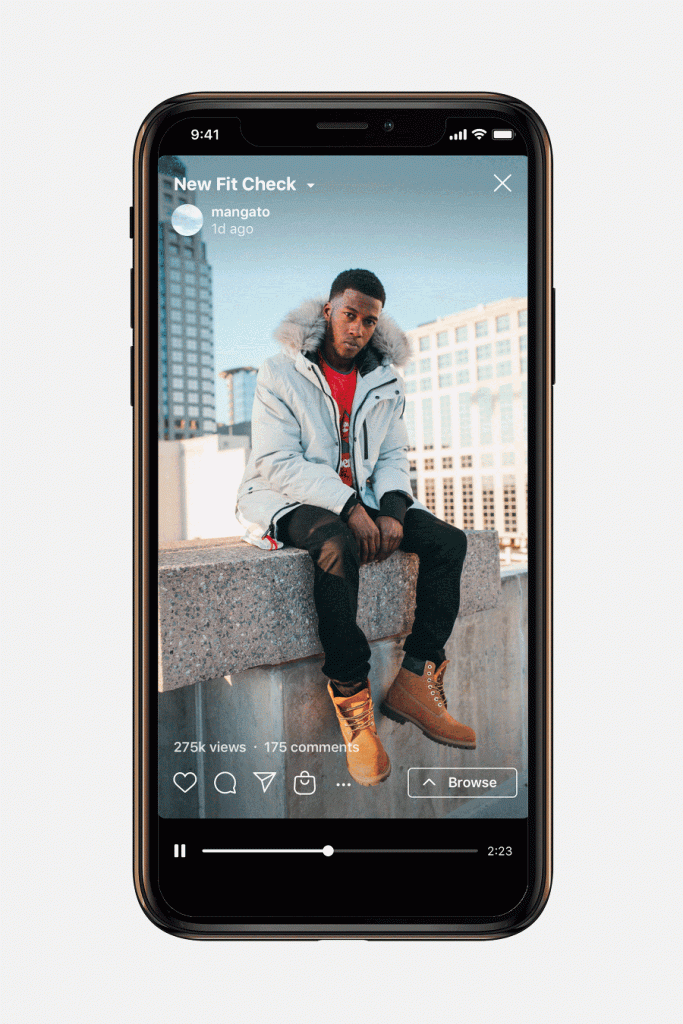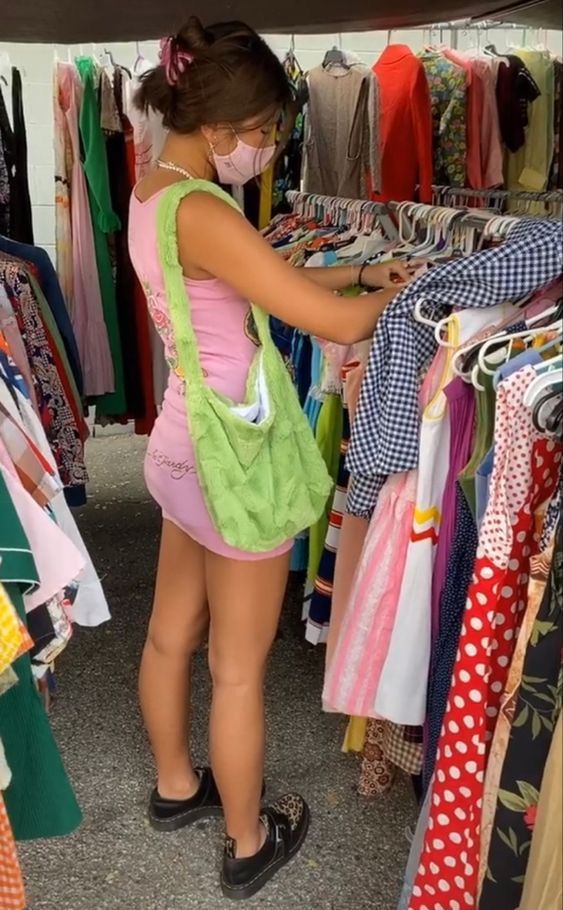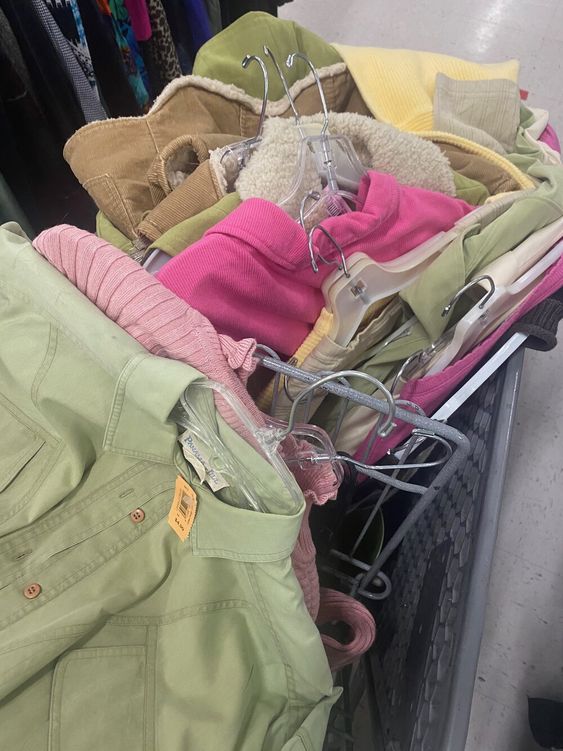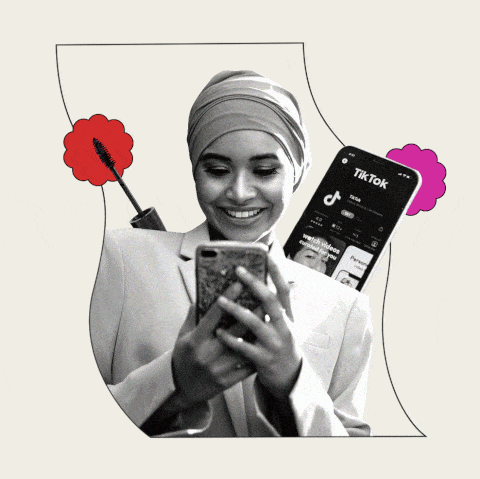- À New Wave to Fashion, À New Way of Living. Download Now on iOS Android Canada SS22
- hello@alahausse.ca
The Growth of the Recommercer: How consumers are choosing to buy Used over New

2021 Ethical Shopping guide for Swimwear
July 2, 2021
Luxury Brands dabbling in the Gaming industry
July 7, 2021
Written By Zeinab Magdi
The recommerce industry has shown exponential growth and popularity in recent years. Millennials and Generation Z are more than two times likely to engage in recommerce than consumers over the age of forty. Buying secondhand retail has become more mainstream, with the fashion resale market expanding twenty-one times faster than traditional retail in the last three years. The market is projected to grow by 10% each year, almost twice the size of the fast fashion market by 2029.
The main drivers of the very recent boom in the resale industry are sustainability and affordability, as well as trends from the seventies, eighties, and nineties resurfacing among millennials and Gen Z. With the rise of the Covid-19 pandemic in 2019, households have been more budget conscious than ever with their purchases, and are more likely to shop via online websites to comply with social distancing guidelines. Millennials and Generation Z are also more likely to shop sustainably, 73% of consumers stated they prefer to purchase from sustainable brands and companies. Purchasing from the recommerce market is attractive to consumers because they have a ‘one of a kind’ feel, at a competitive price range with fast fashion retailers.
What is Recommerce?
Recommerce is basically selling pre-owned products or items through online marketplaces. The idea is to create an online thrifting experience; rather than spending hours looking for the right item at physical thrift stores, the consumer is able to find more curated items from their personal niche. This is done through an online marketplace, a website or app that facilitates shopping from various different sellers. An online marketplace acts as a “digital middleman” between the buyer and the seller. Their business is a direct-to-consumer model, where they facilitate a transaction between supplier and consumers. There are various different types of online marketplaces, the most common being Amazon or eBay. A recommerce online marketplace is specifically focused on selling retail that is previously owned. Leading recommerce companies include The RealReal, ThredUp, Depop, and Poshmark.
Recommerce and Sustainability
The foundation of recommerce is based on the concept of the circular economy – an economic system that is aimed at eliminating waste by keeping products and materials in use. It drives the continual use of resources by redesigning and/or reselling products. Benefits to the circular economy include:


Environmental - reduces waste and greenhouse gas emissions, systemizes recycling, and reduces the demand for raw materials and resources.
- In the recommerce industry, sellers are participating in the circular economy by re-selling recycled and redesigned previously owned clothing, shoes, bags, and accessories. Consumers are participating by buying these products. This reduces the overall waste in the retail industry, and promotes global, environmental sustainability.
Economic - stimulates innovation and economic growth, as well as increasing competitiveness and creativity between different brands and companies.
- This can be seen in fast fashion brands adopting a sustainable business model in order to maintain sales as the demand for sustainability increases among millennials and Gen Z.
- The growth in the recommerce industry has affected the retail industry as a whole, companies are becoming more competitive and there has been an increase in brands marketing themselves as “sustainable” and “eco -friendly” in order to drive sales.
The Economic Growth in the Resale Market
According to ThredUp’s resale trend report for 2020, the recommerce industry is rapidly growing and is set to be valued at sixty-four billion USD in the next five years. By 2024, the resale market is set to have a 39% annual growth rate in comparison to 2019. Between 2019 and 2021, the online secondhand market has grown by 69% percent, in comparison to the traditional retail market which has shrunk 15%. As mentioned previously, households have become more budget conscious with the Covid-19 pandemic. The pandemic caused a decline in the economy, which pushed consumers to shop secondhand as their budget shrunk. Consumers who have never sold their clothes are now more than twice as likely to sell, their number one reason for doing so is to make money. 88% of consumers adopted “thrifty” habits during the pandemic, such as making their own clothes from scratch or upcycling old pieces into newer trendier pieces.
The resale market is set to overtake the fast fashion industry, sixty – six percent of consumers have shopped less at department stores in 2020, luxury retailers have also seen a decline of fifty – two percent. In comparison, online marketplaces such as Amazon Fashion have had a thirty – seven percent increase in traffic, and secondhand marketplaces such as ThredUp, Depop, and TheRealReal have had an increased traffic of forty-four percent. Companies such as The RealReal, which specifically focuses on selling authenticated, secondhand designer clothing, reveal that the demand for designer clothing has not decreased, but there has been a shift in how much consumers are willing to spend on designer clothing.


Consumer Trends in the Resale Industry
According to ThredUp’s resale trend report, the top reasons why people are more likely to sell their clothing are:
- To increase their income
- To promote a sustainability and improve the environment
- To make more money to buy more clothing
- To make room in their closet
These reasons indicate a major shift over the recent years in consumer’s mindsets. Consumers are now more focused on finding unique pieces that will last many years, rather than shopping for clothing that is mass produced. Consumers are also now, more than ever, more likely to shop secondhand to find unique pieces that are at an affordable price range.
Generation Z is leading the growth of the recommerce industry, with forty percent of the generation shopping secondhand. Millennials are right behind them, at thirty percent.
The Future of The Recommerce Industry
According to ThredUp’s resale trend report for 2020, consumers now feel as guilty about buying fast fashion as they do about eating fast food. This will change the retail industry as a whole, companies will now have to operate under a sustainable business model to remain competitive with other retailers. Companies are already adopting these business models and have been doing so since 2019. Not only have they been marketing their own products as sustainable and environmentally friendly, but they have also been partnering with recommerce marketplaces such as ThredUp and TheRealReal in order to be a part of the resale boom.
The top reasons retail executives are interested in testing resale are:
- Eighty-two percent of retail executives are doing so to increase foot traffic
- Sixty – six percent are doing so to improve the environment
- Fifty – eight percent are doing so to appeal to a younger demographic
Retail companies such as Reformation, GAP, Hollister, Walmart, Macy’s, Abercrombie and Fitch, Burberry, and even eBay have been partnering with recommerce companies such as ThredUp, TheRealReal and Fashion Phile over the past two years.
Via ÀLA.HAUSSE‘s Multi-functional and Multi-purposeful Fashion Ecosystem- BUY/SELL/RENT/LEND/ (swap BETA 2021) mobile application, INDIVIDUALS & brands ( BETA 2021) are encouraged to REBUY, RESELL, REUSE and UP-CYCLE their personal “Clossets” aka Clothing Assets, along with overstock inventory and samples. Through this consumerism habit shift we indirectly slow down the urgency on fashion’s carbon footprint, aiding sustainability as a whole.
BETA Early Access Application Now Open for CA Fashion Lovers: Apply Now for LAST CALL
with Stories on www.alahausse.ca
#ALAHAUSSE #WEARYOURPURPOSE #HAUSSEPEOPLE
References:
- https://www.thredup.com/resale/#future-of-fashion
- https://www.fool.com/investing/stock-market/types-of-stocks/esg-investing/
- https://www.forbes.com/sites/forbestechcouncil/2020/10/07/recommerce-on-the-rise-how-traditional-retailers-can-stay-competitive/?sh=42626d047f28
- https://www.practicalecommerce.com/recommerce-surges-as-retailers-brands-get-in-the-game
- https://www.easyship.com/blog/rise-of-recommerce
- https://www.forbes.com/sites/richardkestenbaum/2017/04/26/what-are-online-marketplaces-and-what-is-their-future/?sh=779bd7bf3284








